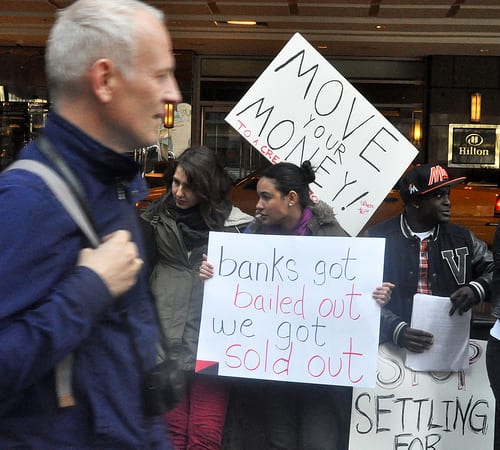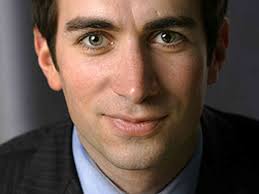Obama in Africa
by Stephen Lendman
Voice of America reflects raw imperial power. It broadcasts US propaganda globally. On June 26, it said Obama “arrived in Senegal, the first stop of a three-nation African trip, focused on supporting democratic progress, and increasing US trade and investment.”
It’s his second African trip. He visited earlier as a freshman Illinois senator. He told Kenyans, “I want you all to know that as your ally, your friend and your brother, I will be there in every way I can.”
He lied. He’s a serial liar. Democracy is verboten. Washington tolerates none at home or abroad. America comes to exploit. At issue is controlling Africa’s rich resources.
Obama’s visiting Senegal, South Africa and Tanzania. He’ll return July 3. Why these countries? More on this below.
Controversy accompanies Obama. His one-week trip costs an estimated $100 million. At the same time, force-fed austerity harms growing millions at home. Poverty, high unemployment, hunger, and homelessness go unaddressed.
Obamanomics enriches corporate favorites and wealthy elites. Popular needs go begging to do so. Obama demands sacrifice. It’s forced on America’s most disadvantaged, unwanted and uncared for.
Foreign travel costs plenty. Hundreds of secret service, staff and others accompany Obama. Travel, accommodations, security and other costs are enormous.
Military cargo planes brought 56 vehicles. They include 14 limousines and three trucks. They’re specially built for security.
Bulletproof glass will replace hotel windows where Obama and his family stay. Entire floors are needed to accommodate security and staff traveling with him.
US fighter jets provide round-the-clock air cover. In 2011, estimated White House expenses were around $1.4 billion. They include staff, housing, travel, entertainment and perks.
Expenses rise annually. They’ve increased exponentially during Obama’s tenure. Perhaps they’ll approach $2 billion this year. Estimates exclude classified amounts.
What’s spent on Air Force One is secret. So are many other security related categories. Perhaps real White House expenses are double or more estimated amounts.
Americans pay plenty for presidents who betray them. Imagine what presidential largese could buy. America’s hungry could be fed. The nation’s homeless could be sheltered. Needy families could get free healthcare. Students hungry for knowledge could be educated.
Obama’s trip might have cost more. Initial plans included a Tanzania safari. Counterassault team protection against wild animals doesn’t come cheap.
Other Obama trips were criticized. Conservative estimates for his Hawaii vacations exceed $20 million. Perhaps they cost double or triple that amount. Air Force One’s estimated hourly rate is about $180,000.
Obama’s African visit reflects America’s scramble for its resources. They’re vast. They’re some of the world’s largest and richest.
They include oil, gas, gold, silver, diamonds, uranium, iron, copper, tin, lead, nickel, coal, timber, cobalt, bauxite, wood, coltan, manganese, chromium, vanadium-bearing titanium, and much more.
Continental agricultural lands are valued. So is offshore fishing. Senegal’s strategically important. It’s a regional hub. It borders Mali.
Washington provides military aid. The Pentagon trains Senegalese armed forces. America has an economic presence. Senegal’s eligible for preferential trade benefits. The African Growth and Opportunity Act provides them.
US exports include vehicles, machinery, plastic, rice, and textile goods. Senegalese resources are extensive. They include oil, phosphate, gold, iron, copper, uranium, chromium, nickel, zircon, titanium, limestone, salts, barytine and fish.
South Africa’s one of five BRICS countries. Others include Brazil, Russia, India and China. They comprise a significant economic and political block. They account for over 20% of world GDP.
They’re on three continents. They cover more than one-fourth of the world’s land mass. Their population exceeds 2.8 billion. It’s 40% of the world total.
They have their own Joint Business Council. It encourages free trade and investment. China and Brazil agreed to a bilateral currency swap line. It involves trading up to $30 billion annually in their own currencies.
Doing so moves almost half their trade out of US dollars. Other BRICS partners may make similar moves. They endorsed plans to create a joint foreign exchange reserves pool. Initially it’ll include $100 billion. It’s called a self-managed contingent reserve arrangement (CRA).
They plan their own Development Bank. Initial capital will be substantial. Each country may contribute $10 billion for starters. It’s to fund infrastructure and other development projects.
It’ll operate separately from Western international lending agencies. It’ll challenge their global dominance. BRICS prioritize multipolarity. Achieving it perhaps can end Western debt bondage.
BRICS have more global trade than America. They’re too important to ignore. They challenge US dominance. They trade increasingly in their own currencies. They may eventually end dollar supremacy.
Perhaps a supranational one or basket of alternatives will do so. BRICS prioritize political and economic solutions. They reject military ones.
China’s the world’s largest exporter. India’s an information technology powerhouse. Brazil’s a dominant agricultural exporter. It’s highly competitive. It has vast amounts of fertile land. It’s known as “the world’s biggest farm.” Russia is oil and gas rich.
South Africa’s the continent’s largest economy. Its resources are worth an estimated $2.5 trillion. It’s rich in gold, platinum, uranium, chrome and manganese ore, zirconium, vanadium, and titanium.
It trades extensively with America. It’s second only to China. The PRC is Africa’s largest trading partner. It’s growing at the expense of America. President Xi Jinping prioritizes increasing strong economic relations.
African nations see China as a healthy counterbalance. It challenges traditional American and other Western dominance. China’s rapid growth requires increasing amounts of many resources. Oil, gas, copper and others are needed.
Getting them creates competition and friction with America. Washington wants unchallenged global control.
AFRICOM was established to exploit the continent’s riches. Resource/mineral control defines America’s agenda. Securing them at China’s expense is prioritized.
Tanzania’s strategically important. It’s a regional hub. It borders eight countries. They include Kenya and Uganda to the north, the Democratic Republic of Congo, Rwanda and Burundi to the west, and Mozambique, Zambia and Malawi to the south.
It borders the Indian Ocean. It’s south of the oil rich Horn of Africa. Its natural resources include hydropower, oil, gas, uranium, tin, phosphates, iron, coal, diamonds, gold, nickel land, rivers, lakes, wetlands, ocean waters, forest/woodlands, wildlife, and fish.
America’s interest throughout Africa is exploitation and dominance. It seeks it through the barrel of a gun. It prioritizes excluding China. It pressures nations to comply. It threatens, inveigles, and bullies. It relies more on muscle than diplomacy.
Beijing seeks strategic relations. It does so diplomatically. It seeks mutually beneficially economic ties. It offers lucrative no-strings investments. They’re too beneficial to refuse.
Obama likely plans more African visits. Others representing him come often. China’s omnipresent on the continent. In 2012, its trade totaled about $200 billion. It’s double America’s amount. Its investments are welcome.
They benefit countries receiving them. Beijing gets increasing access to vital African resources. Mutually beneficial relations assure them. China’s a welcome economic partner.
Washington has other objectives in mind. Brand Obama doesn’t sell well. “Hope and change” reflects unilateralism, bullying and conflict.
Global spying shows how America operates. China takes full advantage. It’s a reliable partner. It’s representatives are welcome when they arrive.
Stephen Lendman lives in Chicago. He can be reached at lendmanstephen@sbcglobal.net. His new book is titled “Banker Occupation: Waging Financial War on Humanity.”
http://www.claritypress.com/LendmanII.html
Visit his blog site at sjlendman.blogspot.com.






